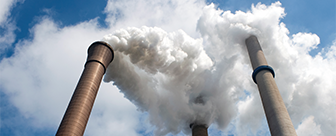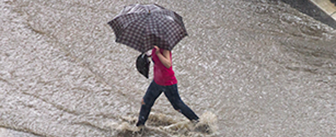A Wisconsin Citizen's Guide to Climate Change
You probably heard that right-wing WI Gov. and pollution-enabler Scott Walker's "chamber of commerce mentality" management at the intentionally-diminished Wisconsin Department of Natural Resources scrubbed climate science information

from the agency's main web page about the causes of climate change and its effects on the Great Lakes.
And I got to thinking that just because Walker and his hand-picked agency Secretary and mission-killer Cathy Stepp withhold critical data and useful links to information from the people shouldn't mean that we can't create resources that might even improve on those which our state-paid censors have deleted.
So here's a first draft of A Wisconsin Citizen's Guide to Climate Change
Suggestions welcomed. Expect updates:
-----------------------------------------------
* Climate.nasa.gov
* Wisconsin Initiative on Climate Change Impacts:
There is a strong scientific consensus that the global climate is changing and that human activity contributes significantly to this trend. The Intergovernmental Panel on Climate Change’s (IPCC) Fifth Assessment Report concludes, with 95 per cent certainty that

from the agency's main web page about the causes of climate change and its effects on the Great Lakes.
And I got to thinking that just because Walker and his hand-picked agency Secretary and mission-killer Cathy Stepp withhold critical data and useful links to information from the people shouldn't mean that we can't create resources that might even improve on those which our state-paid censors have deleted.
So here's a first draft of A Wisconsin Citizen's Guide to Climate Change
Suggestions welcomed. Expect updates:
-----------------------------------------------
* Climate.nasa.gov
Multiple studies published in peer-reviewed scientific journals1 show that 97 percent or more of actively publishing climate scientists agree: Climate-warming trends over the past century are extremely likely due to human activities. In addition, most of the leading scientific organizations worldwide have issued public statements endorsing this position.* ClimateWisconsin.org
Climate Wisconsin is an educational multimedia project featuring stories of climate change. All stories are supported by research conducted in collaboration with the Wisconsin Initiative on Climate Change Impacts. Background essays and teaching tips were developed with support from the Nelson Institute for Environmental Studiesand Center for Biology Education at the University of Wisconsin-Madison. Climate Wisconsin is a project of the Educational Communications Boardwith funding from the Corporation for Public Broadcasting.* Yale Program on Climate Change Communication:
We conduct scientific studies on public opinion and behavior; inform the decision-making of governments, media, companies, and advocates; educate the public about climate change; and help build public and political will for climate action.* ClimateCentral.org
An independent organization of leading scientists and journalists researching and reporting the facts about our changing climate and its impact on the public.* Clean Wisconsin:
Key Points about Climate Change
- Wisconsin’s climate is changing, due primarily to pollution caused by burning fossil fuels for energy.
- Wisconsin’s communities need to act in order to prepare for the coming climate change impacts.
- In Wisconsin, climate change will lead to more severe weather, increased droughts, increased floods, damage to ecosystems like forests and stress on farm crops and livestock, raising the cost of food.
- Climate change will strain populations of fish and wildlife, reducing certain hunting and fishing opportunities in Wisconsin.
- Climate change will adversely impact public health in Wisconsin by increasing the incidence and severity of air pollution and water-borne and vector-borne diseases.
- Actions to reduce global warming pollution can still help to prevent the most dangerous consequences of climate change.
* Wisconsin Initiative on Climate Change Impacts:
Wisconsin's climate has changed since 1950. The average temperature for the whole state has risen by roughly 1.0–1.5 deg. F. The rise has been uneven: northwestern parts of Wisconsin have warmed by roughly 2.0 deg. F; southern and northeastern parts have not warmed much, if at all. Temperature changes also differ by season. Winter and spring have warmed more than summer and fall. Nighttime low temperatures have risen more than have daytime highs.
These changes are reflected in Wisconsin's growing seasons. Since 1950, the growing season has become between one and four weeks longer in different parts of Wisconsin. North central and far northwestern regions have seen the greatest growing season increases. Winter has become correspondingly shorter. Lakes freeze later and thaw earlier on average now than they did in the past. These changes are reflected in plant and animal communities. Spring birds arrive earlier today than in the past. Spring plants bloom earlier. Gardeners are seeing shifts in plant hardiness zones.* League of Conservation Voters:
LCV’s top priority is to address climate change – the greatest challenge of our generation. Climate change is happening now, and it poses a disproportionate threat to low-income communities and communities of color. We must swiftly transition to a clean energy economy that works for all our communities, reduce the harmful pollution created by burning fossil fuels, and invest in strategies that help us prepare for the impacts of climate change, many of which are already underway.* The continuing reporting by veteran Milwaukee Journal Sentinel reporter Lee Berguist. A recent sample:
In a shift from the practice of two other state agencies, Wisconsin emergency management officials have released new information on climate change and its implications for the state.
In a report that it posted online last week, the state Division of Emergency Management devoted extensive attention to climate change and how a warming planet could spur natural disasters such as floods, drought and forest fires.* Midwest Environmental Advocates:
There are federal Clean Air Act and corresponding state regulations for the six most common pollutants: ground level ozone, particulate matter, carbon monoxide, nitrogen oxide, sulfur dioxide, and lead. Other chemicals are regulated through state permits. Short term exposure to these and other air-borne chemicals can cause mild headaches and irritation. Long term exposures, or exposure to high levels of the chemicals, can lead to an increased risk of cancer, aggravated asthma, and neurological problems.
Wisconsin’s air pollution control regulations begin with the minimum requirements established by the Clean Air Act...
Air pollution is difficult to monitor, difficult to regulate and difficult to enforce. Midwest Environmental Advocates works to uphold state and federal air quality standards, but also uses the law in strategic ways to keep polluters from dirtying our air.* The Washington Post's Weather Gang site. A recent sample:
The Arctic is so warm and has been this warm for so long that scientists are struggling to explain it and are in disbelief. The climate of the Arctic is known to oscillate wildly, but scientists say this warmth is so extreme that humans surely have their hands in it and may well be changing how it operates.
Temperatures are far warmer than ever observed in modern records, and sea ice extent keeps setting record lows.* Nelson Institute for Environmental Studies, including:
* The Center for Climatic Research explores the past, present and future of the Earth's climate system and is a world leader in studies of climate history, ocean-atmosphere-biosphere interactions, and future climate at local, regional and global scales.* United Nations climate science website:
There is a strong scientific consensus that the global climate is changing and that human activity contributes significantly to this trend. The Intergovernmental Panel on Climate Change’s (IPCC) Fifth Assessment Report concludes, with 95 per cent certainty that
* Anything written by Andrew Revkin, now at ProPublica:the human influence on the climate system is clear and is evident from the increasing greenhouse gas concentrations in the atmosphere, positive radiative forcing, observed warming, and understanding of the climate system.
Andrew Revkin is the senior reporter for climate and related issues at ProPublica. He joined the newsroom in December 2016, after 21 years of writing for The New York Times, most recently through his Dot Earth blog for the Opinion section, and six years teaching at Pace University.
Revkin began writing on climate change in the 1980s. In the mid 2000s, he exposed political suppression of climate findings at NASA and editing of federal climate reports by political appointees with ties to the petroleum industry. He was the first Times reporter to file stories and photos from the sea ice around the North Pole.* WisconsinWatch.org projects at Wisconsin Center for Investigative Journalism:
Mercury taints the fish. Nitrates, pesticides and endocrine disruptors are seeping into private well water. Trout streams are running dry. In this series, the Center is examining the many threats to Wisconsin’s water supply and water quality.* My blog, The Political Environment, now ten years old with 17,835 posts, of which 2,044 reference the DNR and 685 discuss climate change science, including this recent example:
Climate change censors driven by science denial and obeisance to polluters these days at the GOP-managed, Scott Walker-redefined "chamber of commerce mentality" Wisconsin Department of Natural Resources are at it again.
Not content with having already stripped content and links from an agency webpage about climate change - - deletions I documented some years ago and which I have frequently referenced - - the ideologues intent on scrubbing science off these pages and sowing doubt and confusion about the consensus view of experts worldwide about climate change have edited, deleted and otherwise compressed to whitewash long-standing concepts and facts off a climate change page about the Great Lakes.
The same way, I will add, that Walker edited and watered-down the Wisconsin Idea, which has for decades had been the University system's historic mission statement.The US EPA's climate change website: Copy now before Trump's agency killer Scott Pruitt and the Office of Management and Budget follow the Walker/Stepp Wisconsin model and begin a deep agency cleansing:












No comments:
Post a Comment